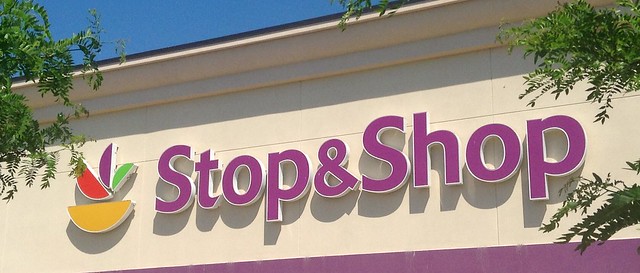
WASHINGTON, D.C. -- Grocery chain Ahold Delhaize USA today announced a new “sustainable chemistry commitment” that restricts toxic chemicals, including the classes of per- and polyfluoroalkyl substances (PFAS), bisphenol A (BPA) and other bisphenols, ortho-phthalates, and other chemicals, in the products sold across its 2,000 stores nationwide. The policy applies to its own branded products in the following categories: all grocery, baby food, and infant formula, as well as formulated laundry, home, personal care, cosmetic, and baby products.
The company also committed to participate in the Chemical Footprint Project in 2020 and publicly report annually on progress. Additionally, Ahold Delhaize USA committed to minimize the occurrence of toxic contaminants and expand the disclosure of ingredients to consumers. However, the company has not fully disclosed its restricted substance list (RSL), nor has it set a clear public timeframe for implementing the restrictions.
The company is the fourth largest dedicated grocery chain in the United States, with more than 2,000 stores and distribution centers across 23 states. Ahold Delhaize USA’s stores include the major supermarket chains Food Lion, Giant Food, GIANT/Martin’s, Hannaford, and Stop & Shop, as well as the online grocer Peapod.
Mike Schade, Mind the Store Campaign Director of Safer Chemicals Healthy Families, said: “We commend Ahold Delhaize USA for developing this new safer chemicals policy and especially for targeting PFAS, phthalates, and bisphenols for elimination in private-label food packaging and other food contact materials, as well as phthalates in beauty and personal care products. These commitments will help drive the creation of a more sustainable and healthy food and product supply for Ahold Delhaize USA’s customers, while increasing pressure on its competitors to do the same. We encourage the company to take the next step by fully disclosing its restricted substance list and setting a clear public timeline for reducing and eliminating these and other toxic chemicals in both private-label and brand-name products. Other top grocery retailers like Kroger, Albertsons, and Publix should join them in driving toxic chemicals like PFAS out of food packaging.”
A 2018 report published by Safer Chemicals’ Mind the Store campaign and Toxic-Free Future found the likely presence of PFAS in some store-brand products and packaging at Ahold Delhaize USA, Albertsons, Kroger, and Whole Foods Market. This new announcement comes at a time when similar retailers are increasingly adopting safer chemicals policies to reduce and eliminate harmful chemicals. Last year, Whole Foods and Trader Joe’s both announced steps to eliminate PFAS in food packaging.
Ahold Delhaize USA’s new policy commitment comes just two months before the release of the 2019 “Who’s Minding the Store?” Retailer Report Card, which benchmarks retailers on their safer chemicals policies and implementation programs. Ahold Delhaize had received letter grades of F in both 2017 and 2018. The company’s new chemicals policy signals a notable improvement to its approach to addressing chemicals of concern.
Also today, a coalition of over sixty organizations across the country sent a letter to the nation’s #2 dedicated grocery chain, Albertsons, urging it to also take action on PFAS in its supply chain. Albertsons recently disclosed it has begun to take action, stating it: “Worked with industry experts and replaced certain prepared food and bakery product packaging to remove per- and polyfluoroalkyl substances (PFAS).”
Meanwhile, states and localities are moving to phase out classes of toxic chemicals, such as PFAS and phthalates, in favor of safer alternatives. Over the past year, both Maine and Washington have enacted bans on PFAS in food packaging. Denmark also recently announced a ban on PFAS in food packaging.
Laurie Valeriano, Executive Director of Toxic-Free Future, said: “It makes a lot of sense for companies like Ahold Delhaize USA to get out in front of the state regulations that are on the horizon. It will not only protect the health of consumers but also save money down the road when they have a system already in place to screen dangerous chemicals off their shelves.”
Elizabeth Saunders, Massachusetts Director of Clean Water Action, said: “We are proud that Ahold Delhaize USA—a Massachusetts-based company—is taking important steps towards protecting customers’ health. Families can now look forward to a time when they have a choice of buying groceries from a store—Stop & Shop in Massachusetts—that doesn't allow toxic PFAS, phthalates or bisphenols in food packaging. Scientists have linked these chemicals to serious health problems, and they don't belong in contact with our food - period. We encourage the company to be more transparent about how it will implement the policy by fully disclosing its RSL and setting an aggressive time-frame for phase-out.”
Mike Belliveau, Executive Director of Environmental Health Strategy Center, said: “We applaud the outstanding market leadership of Ahold Delhaize USA in phasing out phthalates from food packaging for its private brands. This sends a positive market signal to eliminate these hormone-disrupting chemicals from food contact materials where they may commonly hide such as metal lids and bottle caps used to seal glass jars and bottles.”
###
Safer Chemicals Healthy Families leads a nationwide coalition of organizations and businesses working to safeguard American families from toxic chemicals. The group’s Mind the Store campaign challenges big retailers to eliminate toxic chemicals and substitute safer alternatives.
Since our founding during the campaign to pass the landmark Clean Water Act in 1972, Clean Water Action has worked to win strong health and environmental protections by bringing issue expertise, solution-oriented thinking and people power to the table. We will protect clean water in the face of attacks from a polluter friendly Administration. www.cleanwater.org